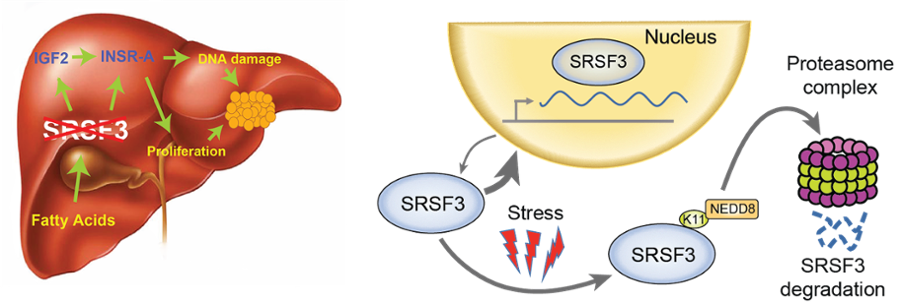Nick Webster Lab
- Immune-Adipocyte Crosstalk
- Time-Restricted Eating
- Metabolic Liver Disease
We are interested in how metabolic derangements in hepatocytes cause progressive liver disease and hepatocellular carcinoma. We found that early steatotic liver disease is accompanied by large changes in RNA splicing that persist through steatohepatitis, fibrosis and even into HCC. Indeed many of these early splicing changes are predictive of survival in HCC. We have shown that several splicing factors have altered expression in metabolic liver disease, including the serine and ariginine-rich splicing factor 3 (SRSF3). The SRSF3 protein is subject to proteosomal degradation in hepatocytes in response to obesity or lipid-induced stress through conjugation to the NEDD8 protein. We showed that artificial disruption of RNA splicing by genetic deletion of SRSF3 results in a liver regeneration phenotype with increased proliferation and apoptosis, and cellular pleiomorphism. Loss of SRSF3 causes deregulation of IGF2 and missplicing of the insulin receptor leading to DNA damage and proliferation that eventually leads to fibrosis and hepatocellular carcinoma. We are currently investigating how changes in transcript isoforms could predispose to disease progression.

